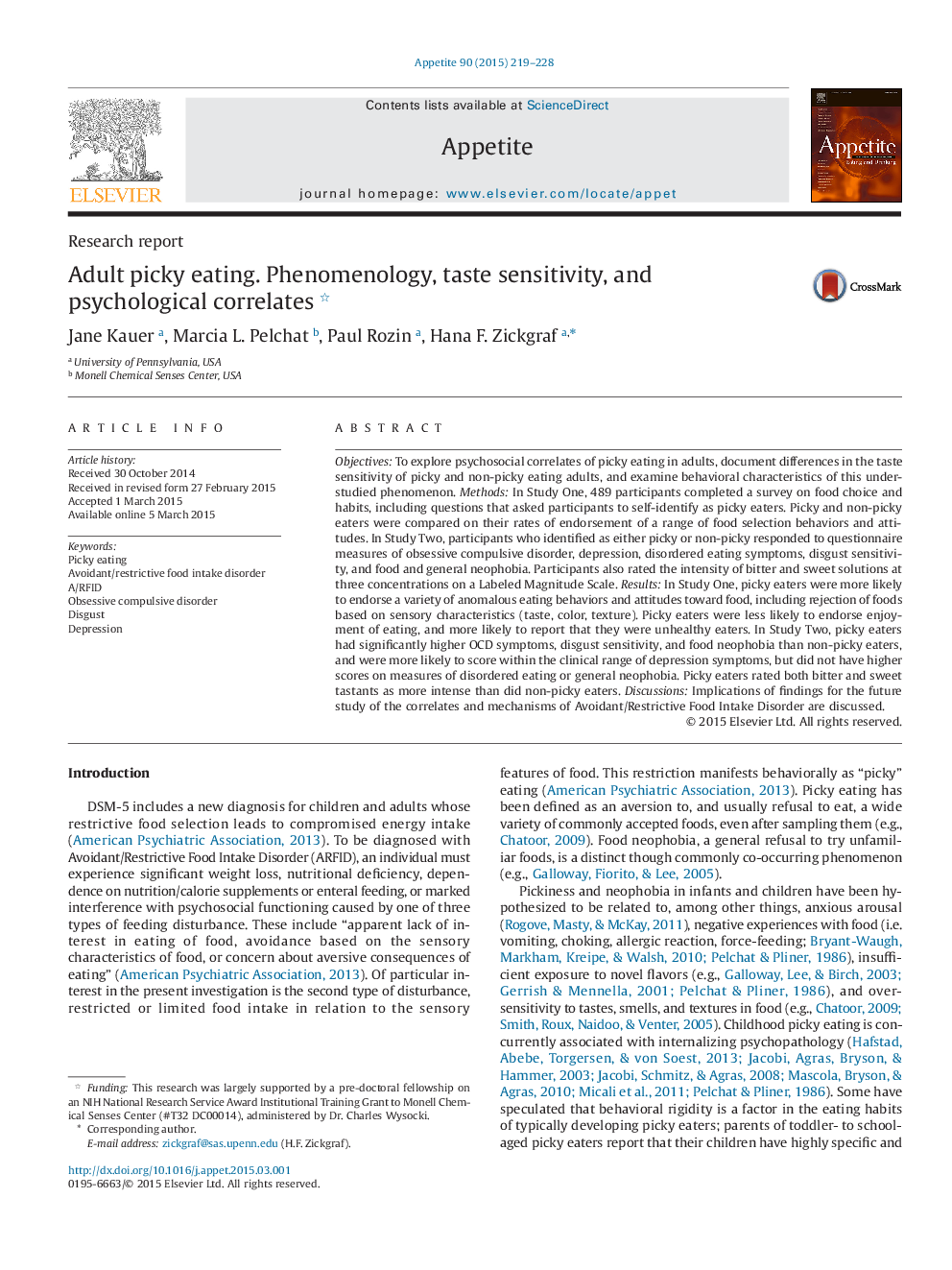| Article ID | Journal | Published Year | Pages | File Type |
|---|---|---|---|---|
| 7308959 | Appetite | 2015 | 10 Pages |
Abstract
Objectives: To explore psychosocial correlates of picky eating in adults, document differences in the taste sensitivity of picky and non-picky eating adults, and examine behavioral characteristics of this understudied phenomenon. Methods: In Study One, 489 participants completed a survey on food choice and habits, including questions that asked participants to self-identify as picky eaters. Picky and non-picky eaters were compared on their rates of endorsement of a range of food selection behaviors and attitudes. In Study Two, participants who identified as either picky or non-picky responded to questionnaire measures of obsessive compulsive disorder, depression, disordered eating symptoms, disgust sensitivity, and food and general neophobia. Participants also rated the intensity of bitter and sweet solutions at three concentrations on a Labeled Magnitude Scale. Results: In Study One, picky eaters were more likely to endorse a variety of anomalous eating behaviors and attitudes toward food, including rejection of foods based on sensory characteristics (taste, color, texture). Picky eaters were less likely to endorse enjoyment of eating, and more likely to report that they were unhealthy eaters. In Study Two, picky eaters had significantly higher OCD symptoms, disgust sensitivity, and food neophobia than non-picky eaters, and were more likely to score within the clinical range of depression symptoms, but did not have higher scores on measures of disordered eating or general neophobia. Picky eaters rated both bitter and sweet tastants as more intense than did non-picky eaters. Discussions: Implications of findings for the future study of the correlates and mechanisms of Avoidant/Restrictive Food Intake Disorder are discussed.
Keywords
Related Topics
Life Sciences
Agricultural and Biological Sciences
Food Science
Authors
Jane Kauer, Marcia L. Pelchat, Paul Rozin, Hana F. Zickgraf,
